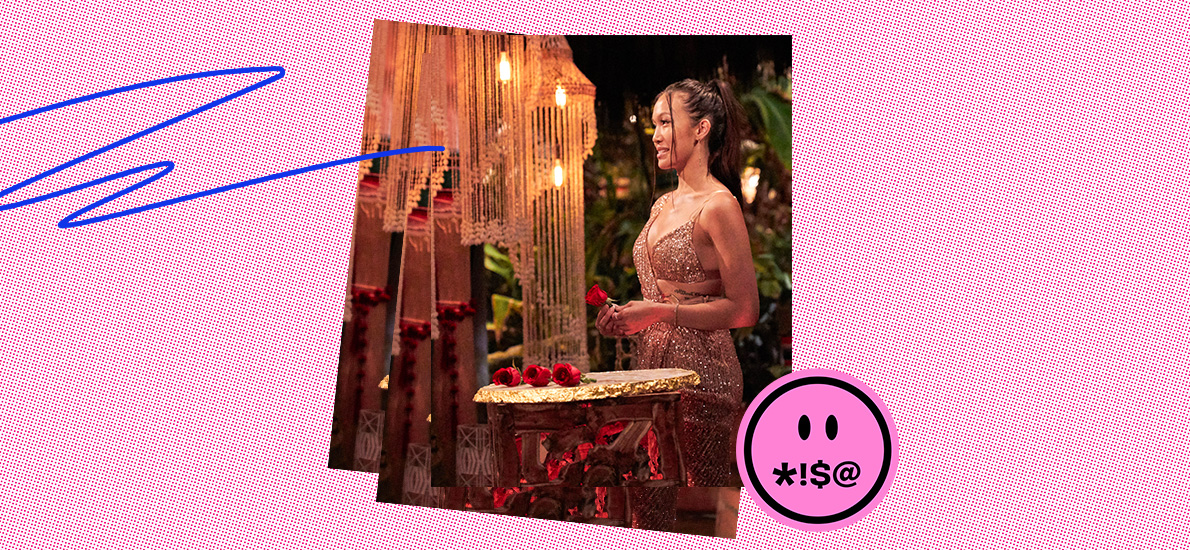Let me start by saying: I love love. Love can open new doors, help you see things in a different light, and completely change your world. I believe that everyone deserves a shot at experiencing true love, and finding the partner that makes them feel like the best possible version of themselves. And I’m all in—my entire career is built on helping others find their person.
So yes, I’m a romantic. But when it comes to Asian dating in the U.S., I’m a frustrated romantic (though, not a hopeless one). As a longtime fan of The Bachelor franchise, I’ve tuned in every Monday (now, Tuesday) to watch live love in action. I love the romantic gestures, the fantastic dates, the proposals, and even the friendships that develop between contestants. But after nearly 20 years of watching the show, I’ve got to ask, where are the Asians at?!
Even though Asian-Americans are the fastest-growing ethnic group in the United States, Asian contestants are rarely seen on dating shows. And when they are, they’re disqualified early on or made out to be drama-seeking villains. Tammy Ly, perhaps the best-known Asian franchise contestant, was continuously framed as a pot-stirrer by the editors and producers, despite being there for the same reasons as everyone else—to look for love.
The phrase “reality TV” in and of itself is an oxymoron. We all know that what we see on screen is not a true reflection of life. There’s a lot that goes on behind the scenes and in the editing room that turns normal interactions into the dramatic, tension-filled scenes we love to watch. It’s easy to brush it off like it’s completely unimportant, but what we see on TV and in movies matters, even if it’s not completely true to life.
In a period of time when Asian hate crimes are at an all-time high, we cannot stand by and ignore how the things we see on the screen perpetuate the real and terrible things happening to Asian people in the United States—on the street, in office buildings, and yes, on dating apps.
How many Asian women have been reached out to on Tinder with fetishizing, dehumanizing pick-up lines? How many Asian men have been told, “sorry, I’m just not into Asian guys”?
The true, lived experience of Asian people in the United States cannot be viewed as separate from the storylines we see on TV. Positive media representation alone cannot solve every problem, but it’s a critical first step in ensuring that Asian people are seen as human beings, who are deserving of respect, empowerment, and love, just like everyone else.
It’s why I founded my company. I know what it’s like to be a member of the diaspora: I am so proud of my Japanese heritage and the beautiful culture that comes along with it, but it can be a challenge not to feel othered when living in the United States. I believe so strongly in the power of love, and am empowered by the amazing community of other diasporic Asians that I have been able to connect with.
I am proud that the community I have been able to cultivate runs counter to so much of what we see on television. My friends and colleagues are not the side characters we are relegated to on television, nor are we the self-hating characters who turn their backs on our culture and resent their parents’ accents and upbringing. We bring together the best parts of our cultures while remaining whole and proud.
So this is what I ask: Let’s think critically about the media we consume. Are the Asian characters on your favorite show playing into harmful, dangerous stereotypes? Are they purposefully villainizing female Asian characters, or emasculating their male Asian characters? We’re no longer settling for crumbs when it comes to Asian representation.
And to my Asian community: Don’t give up hope on finding your person. Find ways to build your community and find friendships. Not only will that make you feel more fulfilled, but opening up your network can help grow relationships with people who value your culture, and have morals that align with yours. We’re fortunate to have such a strong community here. Use that to your advantage when dating and seeking out relationships.
Bachelor Nation, if you want to talk about casting, I’m happy to help find your next Bachelorette. And Tammy, if you’re reading this: We’re in your corner, don’t let the haters (or the Bachelor editors) get you down.
Image: ABC/Craig Sjodin








































